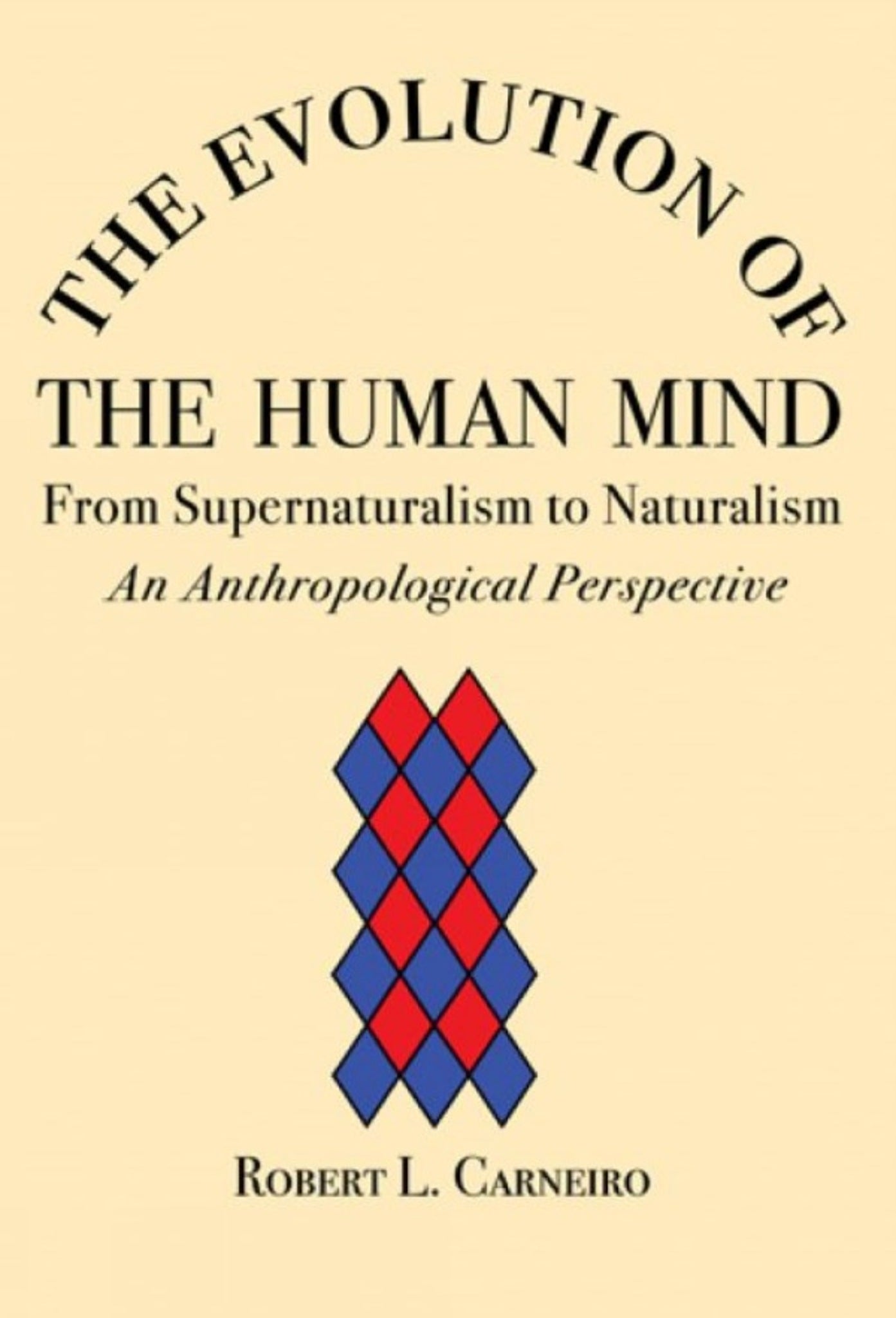We're sorry. An error has occurred
Please cancel or retry.
The Evolution of the Human Mind

Some error occured while loading the Quick View. Please close the Quick View and try reloading the page.
Couldn't load pickup availability
- Format:
-
31 December 2010

For ages the events of human experience were explained by recourse to supernatural agents and forces. Given the rudimentary intellectual tools then available to the human race, no better explanations were possible.
Over the ensuing centuries, the ideas and methods of empirical science came into being and were applied to all aspects of human experience. Conceptions of life, the world, the universe, and even of God were modified, with naturalistic interpretations challenging and supplanting supernaturalistic ones. Today the viewpoint of science is gaining ever-greater acceptance.
In his eloquent new book, The Evolution of the Human Mind, Robert Carneiro traces the history of this development—from the Paleolithic to the present—vividly describing the major events that have marked this great transition in human thought.

SOCIAL SCIENCE / Anthropology / Cultural & Social, Social and cultural anthropology

'An enormous achievement. Wherever I landed, whether it was the origin of ‘emergence,’ Einstein’s religion, the death of Platonic views of nature, or the strangely self-contradictory worldview of Julian Huxley, I learned something new. Wise, authoritative, and entertaining!' (Richard Milner, Author of Darwin’s Universe: Evolution from A to Z)
'I think the book is excellent. Easy to read—both because of its writing style and the layout in relatively brief sections. This makes it a pleasure to read—and the subject is so exhilarating! . . . A book to read and then keep for reference.' (Ken Perrott, Open Parachute (http://openparachute.wordpress.com/))
'Carneiro traces the notion of ‘a thoroughgoing belief in unalloyed supernaturalism toward an attitude in which naturalism played an increasingly greater role’ . . . . The great debate today is between sociobiologists and cultural anthropologists to determine how much of human behavior and thought is genetically programmed and how much is culturally determined. Carneiro is firmly in the cultural camp, and longs for the day when humankind simply pursues truth and no longer seeks religious solace.' (G. M. Smith, Choice)
'[I]nteresting and informative. . . . [A] nicely written contribution to understanding the evolution of competing ideas.' (Kenneth M. Weiss, Journal of Anthropological Research)
'[A] fine example of how pure anthropology can not only be relevant but powerful! . . . The Evolution of the Human Mind is a skillfully written book that you won’t regret buying. It is destined to be a classic. Carneiro makes direct statements that writers love to cite (and readers love to read).' (Ira R. Wishoff, The Dirt Brothers (http://dirtbrothers.org/))
Prepublication praise . . .
'This insightful overview by a distinguished cultural anthropologist of how humans moved from animistic and supernatural views of the universe, spawned in the infancy of the species, to a naturalistic perspective based on science, is truly inspiring.' (Paul Kurtz, State University of New York at Buffalo)
'Does God exist? What is clear is that theistic beliefs exist, and their origin and development are brilliantly illuminated here. Carneiro’s subtle but enlightening treatment will be a breath of fresh air for all who find answerable questions more interesting than unanswerable ones.' (Robert Bates Graber, Truman State University)
'Carneiro’s erudition is breathtaking as he explores the concept of the soul, the nature of animate supernatural creatures, the emergence of polytheism, and the rise of monotheism. The evolution of the human mind is handled magnificently in this compelling and original book.' (Joyce Marcus, University of Michigan)
Chapter 1. The Emergence of the Supernatural
Chapter 2. The Spirit World Elaborates
Chapter 3. Origin Myths: Accounting for Things as They Are
Chapter 4. The Life of the Soul After Death
Chapter 5. The Later History of Soul Beliefs
Chapter 6. The Birth and Evolution of the Gods
Chapter 7. The Rise of Scientific Thinking
Chapter 8 The Impact of the Physical Sciences
Chapter 9. The Attenuation of the Concept of God
Chapter 10. The Rise and Demise of Idealist Philosophy
Chapter 11. The Expansion of Naturalism
Chapter 12. The Coming of Evolution
Chapter 13. The Impact of Evolution
Chapter 14. The Religious Views of Charles Darwin
Chapter 15. The Twin Specters of Atheism and Materialism
Chapter 16. Vitalism versus Mechanism in the Interpretation of Life
Chapter 17. Accounting for the Origin of Life
Chapter 18. Evolution and Emergence
Chapter 19. The Diminishing Role of God in History
Chapter 20. Free Will versus Determinism
Chapter 21. The Doctrine of the Two Magesteria
Chapter 22. The Scientists Speak Up: The Theists
Chapter 23. The Scientists Speak Up: The Non-Theists
Chapter 24. Trends in Belief to the End of the Nineteenth Century
Chapter 25. Secularism and Religion Continue to Compete
Chapter 26. Current Status and Future Prospects
References
Index



